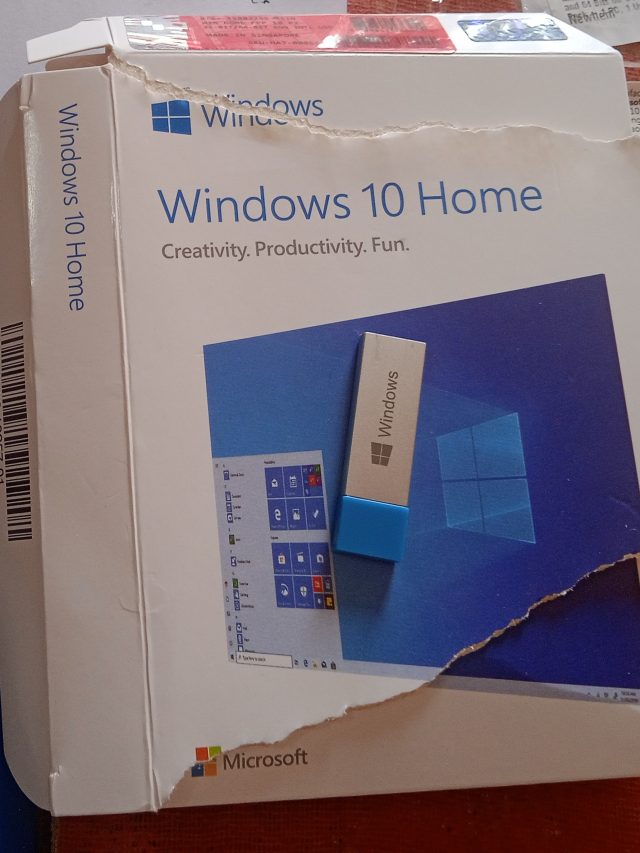
What is consumer right?
Does consumer rights act apply on ecommerce websites?
Yes, The Consumer Protection (E-Commerce) Rules, 2020.These rules shall apply to:
(a) All goods and services bought or sold over digital or electronic networks including digital products.
(b) All models of e-commerce, including marketplace and inventory models of e-commerce.
(c) All e-commerce retail, including multi-channel single brand retailers and single brand retailers in single or multiple formats.
Which laws regulate the e-commerce business in India?
Indian Contract Act, 1872
Indian Copyright Act, 1957
The Patents Act, 1970
Intellectual Property Issues
Income Tax Act, 1961
Double Taxation Avoidance Agreement
Good and Services Tax
Information Technology Act, 2000
Additionally, Information Technology (Intermediaries Guidelines) Rules, 2011
Information Technology Act, 2000 (IT Act) and General Data Protection Regulations (GDPR).
Consumer Protection Act, 1986
The Consumer Protection Act, 2019
Online Purchase safety and precautions, consumer rights
Once were the days when people made schedules for shopping. And also, shopping was categorized in different subcategories,
Family shopping
Kids Shopping
Birthday Shopping
Marriage Shopping
Funeral Shopping and many more…
Shopping was the event!
For one has to, gather all sorts of information about the best shopping stores in the city. Their location, their mode of payment, their policy of delivery, their replacement procedure, guarantee, warranty etc. And off-course there was no privacy policy during those days.
Physical Shopping was the best form of shopping. As there were less or no chances of fraud on the part of shopkeepers or shopping store owners or salesmen. The customers chose items paid for and the shopping completed. Consumer rights
There were no means of ‘unfair trade practice’ or deliberate attempts to sell the faulty goods to a customer. The main reason was that the very next day the customer returned the faulty goods to the dealer. To avoid this sort of situation most of the Store owners avoided unfair trade practice, for the fear of losing their Store’s reputation and the credibility, which they had earned over the years.
Then came the Television Shopping experience.

The Brand Owners launched the television program for promoting and sale of their products, through the provided toll-free phone no’s. These televisions shopping brands sold worthless products at exorbitant rates, but people continued to shop from these television stores. Despite many limitless and no statute to check these kinds of business practices, these stores found tremendous growth until the dawn of Online Shopping Sites.
And with the easing internet technology and cheap data availability–the online shopping sites also known as E-Commerce Sites gave the unique and delightful shopping experience to the online shoppers.
Today we have e-com giant, Amazon, which has captured the 95% online market in India. Amazon India is acting as an e-com operator to give opportunities to dealers to sell their products from its platforms by paying the selling fee to Amazon. Apart from Amazon India many Indian e-com Sites are also operational, these are…
Flipkart
Myntra
Snapdeal
Shopclues
Firstcry
Nykaa
Ebay
Paytm mall
AJIO
Indiamart… etcetera
The main objective of all these e-commerce sites is to increase their own profitability. They least bother about the product qualities, product issues, grievance redressal and privacy policy of the customers.
This blog is written on the personal experience of the author. When he ordered a defined product and Amazon sent a different product…
First go through the below text: The terms and conditions put-forth by the Department of consumer Affairs, GOI.
Then at the end of this text there is the whole buying story of the author.
The Rules for Consumer Protection, consumer rights
Despite stringent laws made by the Indian Government, that govern and regulate the e-commerce business in India. These e-commerce companies cheat the customers on a daily basis knowingly and unknowingly.
Following are the Statues that regulate the e-commerce business in India:
Indian Contract Act, 1872
Indian Copyright Act, 1957
The Patents Act, 1970
Intellectual Property Issues
Income Tax Act, 1961
Double Taxation Avoidance Agreement
Good and Services Tax
Information Technology Act, 2000
Additionally, Information Technology (Intermediaries Guidelines) Rules, 2011
Information Technology Act, 2000 (IT Act) and General Data Protection Regulations (GDPR).
Consumer Protection Act, 1986
The Consumer Protection Act, 2019
As we all know, ordinary and common citizens don’t have any good knowledge about consumer rights. Or don’t want to get involved in the technicalities and the tough jargons of the law. So they leave their genuine grievances and bear the huge losses on themselves.
some common and the day to day needed knowledge of the e-commerce purchases is delineated below in a easiest paragraphs
The Consumer Protection (E-Commerce) Rules, 2020.These rules shall apply to:
(a) All goods and services bought or sold over digital or electronic networks including digital products.
(b) All models of e-commerce, including marketplace and inventory models of e-commerce.
(c) All e-commerce retail, including multi-channel single brand retailers and single brand retailers in single or multiple formats.
(d) All forms of unfair trade practices across all models of e-commerce.
These rules shall apply to an e-commerce entity which is not established in India, but systematically offers goods or services to consumers in India. Consumer rights
The Consumer Protection Act, 2019 (35 of 2019)
(1) Grievance includes any complaints to an e-commerce entity regarding violations of the provisions of the Act. And the rules made thereunder. Consumer rights
(2) Every e-commerce entity shall provide the following information in a clear and accessible manner on its platform, displayed prominently to its users:
- Legal name of the e-commerce entity.
- Principal geographic address of its headquarters and all branches.
- Name and details of its website;
- Contact details like email address, fax, landline and mobile numbers of customer care as well as of grievance officers.
(3) No e-commerce entity shall adopt any unfair trade practice, whether in the course of business on its platform or otherwise.
(4) Every e-commerce entity shall establish an adequate grievance redressal mechanism having regard to the number of grievances ordinarily received by such entity from India and shall appoint a grievance officer for consumer grievance redressal, and shall display the name, contact details, and designation of such officer on its platform. Consumer rights
Every e-commerce entity shall ensure that the grievance officer acknowledges the receipt of any consumer complaint within forty-eight hours and redresses the complaint within one month from the date of receipt of the complaint.
(5) Where an e-commerce entity offers imported goods or services for sale, it shall mention the name and details of any importer from whom it has purchased such goods or services, or who may be a seller on its platform.
(6) Every e-commerce entity shall endeavor on a best effort basis to become a partner in the convergence process of the National Consumer Helpline of the Central Government.
(7) No e-commerce entity shall impose cancellation charges on consumers canceling after confirming purchase unless similar charges are also borne by the e- commerce entity, if they cancel the purchase order unilaterally for any reason. Consumer rights
(8) Every e-commerce entity shall only record the consent of a consumer for the purchase of any good or service offered on its platform where such consent is expressed through an explicit and affirmative action, and no such entity shall record such consent automatically, including in the form of pre-filled check boxes.
E-commerce entity
(9) Every e-commerce entity shall affect all payments towards accepted refund requests of the consumers as prescribed by the Reserve Bank of India or any other competent authority under any law for the time being in force, within a reasonable period of time, or as prescribed under applicable laws.
(10) No e-commerce entity shall manipulate the price of the goods or services offered on its platform in such a manner as to gain unreasonable profit by imposing on consumers any unjustified price having regard to the prevailing market conditions, the essential nature of the good or service, any extraordinary circumstances under which the good or service is offered, and any other relevant consideration in determining whether the price charged is justified. Consumer rights
(11) discriminate between consumers of the same class or make any arbitrary classification of consumers affecting their rights under the Act. Consumer rights
Liabilities of marketplace e-commerce entities. Consumer Rights
(1) A marketplace e-commerce entity which seeks to avail the exemption from liability under sub-section (1) of section 79 of the Information Technology Act, 2000 (21 of 2000) shall comply with sub-sections (2) and (3) of that section, including the provisions of the Information Technology (Intermediary Guidelines) Rules, 2011.
(2) Every marketplace e-commerce entity shall require sellers through an undertaking to ensure that descriptions, images, and other content pertaining to goods or services on their platform is accurate and corresponds directly with the appearance, nature, quality, purpose and other general features of such goods or service.
Duties of sellers on the marketplace. Consumer rights
(1) No seller offering goods or services through a marketplace e-commerce entity shall adopt any unfair trade practice whether in the course of the offer on the e-commerce entity’s platform or otherwise.
(2) No such seller shall falsely represent itself as a consumer and post reviews about goods or services or misrepresent the quality or the features of any goods or services. Consumer rights
(3) No seller offering goods or services through a marketplace e-commerce entity shall refuse to take back goods, or withdraw or discontinue services purchased or agreed to be purchased, or refuse to refund consideration, if paid, if such goods or services are defective, deficient or spurious, or if the goods or services are not of the characteristics or features as advertised or as agreed to, or if such goods or services are delivered late from the stated delivery schedule: Provided that in the case of late delivery, this sub-rule shall not be applied if such late delivery was due to force majeure.
(4) Any seller offering goods or services through a marketplace e-commerce entity shall:
(a) have a prior written contract with the respective e-commerce entity in order to undertake or solicit such sale or offer. Consumer rights
(b) appoint a grievance officer for consumer grievance redressal and ensure that the grievance officer acknowledges the receipt of any consumer complaint within forty-eight hours and redresses the complaint within one month from the date of receipt of the complaint. Consumer rights
(c) ensure that the advertisements for marketing of goods or services are consistent with the actual characteristics, access and usage conditions of such goods or services. Consumer rights
(d) provide to the e-commerce entity its legal name, principal geographic address of its headquarters and all branches, the name and details of its website, its e-mail address, customer care contact details such as fax, landline, and mobile numbers and where applicable, its GSTIN and PAN details. Consumer rights
(5) Any seller offering goods or services through a marketplace e-commerce entity shall provide the following information to the e-commerce entity to be displayed on its platform or website: consumer rights
(a) All contractual information required to be disclosed. Consumer Rights
(b) Total price in single figure of any good or service, along with the breakup price for the good or service, showing all the compulsory and voluntary charges such as delivery charges, postage and handling charges, conveyance charges and the applicable tax, as applicable.
(c) All mandatory notices and information provided by applicable laws, and the expiry date of the good being offered for sale, where applicable.
For further knowledge if needed Consumer Protection (E-Commerce) Rules, 2020 | Department of Consumer Affairs | Ministry of Consumer Affairs Food and Public Distribution | Government of India, or otherwise the text above defines all the information which you need to defend your case in any platform or the court of Law
You can also download the ecommerce rule by clicking this link
Now as said earlier about the personal experience of the author, here is the story: Consumer rights
I ordered a Windows 10 home retail pack on Amazon.in. But not blindly, rather after reading all the reviews of the product and its seller. And then speaking to the customer care executive.
Buying digital products and software online is a risky affair. One get confused by seeing the price variations, some sell Windows 10 home for 4000 INR, some at 2000 INR and some @ 8000 INR.
Why I purchased windows from Amazon.in? Consumer rights

Now a question may be lurking in your mind: why I purchased windows from Amazon.in? The answer is It was my compulsion. I was well aware of the fact that the sellers on online shopping sites always sell fake software licenses. Consumer rights
Basically, I badly needed windows 10 home for the other PC. So I went to Microsoft website and tried to purchase the Windows 10 home retail license from there, but the payment failed, then I contacted the Microsoft through phone for the payment difficulty, I tried many times nearly for the month, but every time payment failed and that for the reason, I ordered through Amazon.in.
For the Windows 10 home full retail pack I paid Rs 8268/-. And after a few days I Received my windows 10 home pack, I was very Glad…
I installed the new windows 10 from clean boot, but unfortunately the software didn’t work well. There were update problems, glitches so, I decided to contact Microsoft support. There I came to know the windows I installed is OEM license and not the full retail license. That was cheating! then contacted Amazon customer Care. After many hectic conversations they ultimately told me that we can do nothing in that case.
I was not dejected for the amount paid but the cheating they did. I contacted the seller also. And after 3 days the seller sent a message. That it is fulfilled by Amazon, “we didn’t know what they have sent to you”.
What to do now? Consumer rights
And In-fact you can do nothing, I searched for the remedy from the internet. And from Quora, I got the Email id of Jeff Bezos.
So I sent an email on that email id, Only a try. Next day a call came from Amazon Customer Executive assuring me of the honest resolution. I waited, nothing happened. After 15 days I dropped another email to Jeff Bezos. The next day I received an email mentioning that we will enquire about this order no.
And on this date while writing this blog there is no response from Amazon.in.
Always avoid software buying from online shopping sites as they don’t sell genuine licensee products…
I was not aware that the Consumer helpline also accepts the customer grievances. Apart from the consumer forums and the consumer courts. While browsing the internet I saw the consumer helpline no. I dialed the toll-free no 1800114000 or 1915. There they told me that we can also accept your grievance and send this to Amazon.in…
You can also file an online consumer case on edaakhil.nic.in
Conclusion: – Consumer rights
- I am waiting for the response from amazon.
- Never let your hard-earned money go to waste.
- Learn to fight for your rights.
- Online Shopping is the best form of shopping as you get enough time to see the products from every dimension. And there are the least chances of Customer Remorse.
- Always Read all the reviews of the product, as well as, of the seller.
- Never buy cheap products.
- Try to buy the branded products from the online shopping sites as you get the double protection.
- Don’t buy any kind of computer software from the online shopping sites. Unless the software is sold by the company itself.
Takeaway: – How many of you see the grievances redressal officers, their office address and their phone no’s on the e-commerce websites.
Consumer rights
Read Also: 5G mobile sets






